Your cart is currently empty!
Month: July 2024
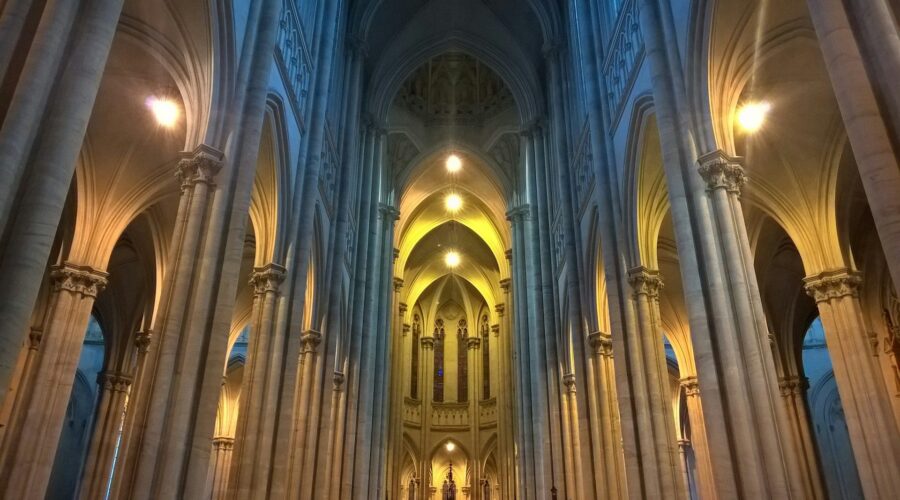
The Well Church: A Comprehensive Guide to Its Beliefs, Practices, and Impact
Introduction
The Well Church, also known as The Well International Church, is a global network of churches with a significant presence across various countries. Established in 1993 by Pastors Phil and Margaret Pringle, the church has grown exponentially over the years, known for its emphasis on spiritual formation, discipleship, and reaching out to the community.
Core Beliefs
- The Bible as Authority: The Well Church upholds the Bible as the infallible and authoritative Word of God, the foundation for all its teachings and practices.
- Triune God: It believes in the Trinity—God the Father, God the Son (Jesus Christ), and God the Holy Spirit—as one God in three distinct persons.
- Salvation through Jesus: The church emphasizes the significance of salvation through faith in Jesus Christ, who died and rose again to redeem humanity from sin.
- Holy Spirit Empowerment: The Holy Spirit is believed to indwell and empower believers, enabling them to live Christian lives and fulfill God’s purpose.
- Church as Family: The Well Church views its congregation as a family of believers, supporting and encouraging each other in their spiritual journeys.
Practices and Structures
Discipleship and Mentorship
Discipleship is a central aspect of the Well Church community. Members are encouraged to participate in small groups and one-on-one mentoring programs, where they receive guidance, support, and accountability.
Community Outreach
The church places a strong emphasis on serving the community. Members engage in various outreach initiatives, such as social services, poverty alleviation, and supporting those in need.
Worship and Arts
Worship is a vital part of the Well Church experience. Services include vibrant music, passionate sermons, and creative arts that aim to connect worshippers with God.
Leadership Structure
The Well Church is organized hierarchically, with Pastors Phil and Margaret Pringle serving as the senior pastors. Each church location has its own lead pastor and a team of assistant pastors and elders who provide oversight and guidance.
Global Impact
The Well Church has established a substantial global presence. It has churches in over 100 countries, spanning continents and cultures. Its impact includes:
Church Planting and Growth
The church has played a significant role in planting new churches, both locally and internationally. Through its church planting initiatives, it has contributed to the expansion of the Christian faith worldwide.
Social Justice and Community Development
The Well Church is actively involved in social justice initiatives and community development projects. It works alongside local organizations to address poverty, provide education, and support vulnerable populations.
Missions and Evangelism
The church has a strong missionary focus, sending teams to various countries to share the gospel and serve local communities. It also supports international evangelistic outreaches.
Criticism and Controversies
Like any large organization, the Well Church has faced some criticism and controversies over the years. These include:
Financial Practices
Concerns have been raised about the church’s financial practices, including allegations of financial mismanagement and lack of transparency in certain cases.
Doctrinal Issues
Some critics have questioned certain aspects of the church’s teachings, particularly regarding the role of women in leadership and the prosperity gospel.
Leadership Scandals
The church has been involved in several leadership scandals, including allegations of inappropriate behavior and abuse of power by pastors and staff members.
Conclusion
The Well Church is a complex and multifaceted organization with a significant global impact. Its emphasis on discipleship, community outreach, and spiritual growth has attracted millions of members. However, it has also faced challenges and controversies, highlighting the need for accountability and transparency in religious organizations. Despite these criticisms, the Well Church remains a vibrant and influential force in the Christian landscape, continuing to shape lives and communities worldwide.
Additional Resources
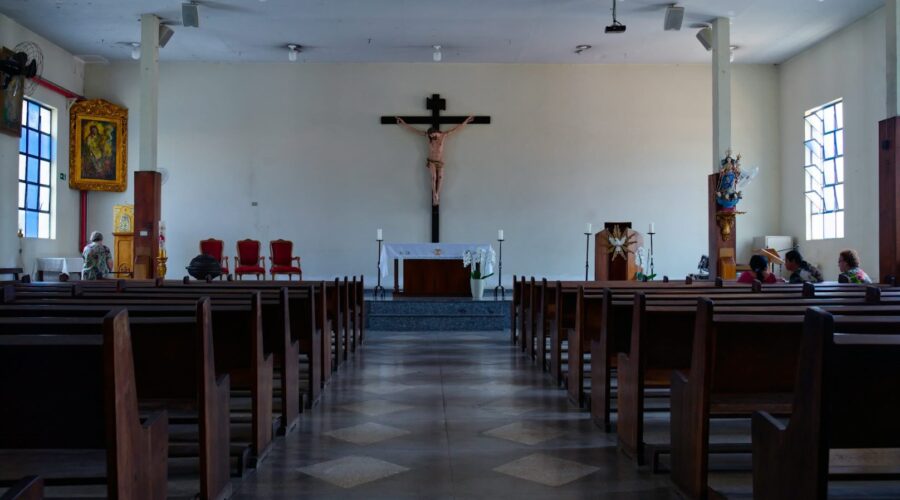
Discover the Heart of Christianity at Central Church of Christ
About Central Church of Christ
At the heart of the city, nestled amidst vibrant streets, lies Central Church of Christ—a beacon of faith and fellowship. Established in 1849, our church has served as a spiritual home for generations of believers, guiding them on their Christian journey.
Central Church of Christ is a Bible-based, non-denominational congregation affiliated with the independent Churches of Christ. Our focus is on the teachings of Christ, as revealed in the Scriptures. We believe in the New Testament pattern of worship, emphasizing baptism by immersion, the Lord’s Supper, and regular Bible study.
Our Beliefs and Values
Core Beliefs:
- The Bible as the infallible Word of God
- Jesus Christ as the only Savior and Lord
- The Holy Spirit as the guide and comforter
- The importance of baptism for salvation
- The need for continuous growth and discipleship
Core Values:
- Love: We strive to embody Christ’s love for all, both within our congregation and beyond.
- Service: We are committed to serving others, following the example of Christ’s humility and compassion.
- Unity: We believe that unity within the body of Christ is essential, and we actively promote fellowship and reconciliation.
- Excellence: We seek to glorify God in all that we do, pursuing excellence in our worship, teaching, and outreach.
Our Mission and Vision
Mission Statement:
To lead people to Christ and help them grow as disciples, equipping them to fulfill their God-given potential and impact the world.
Vision Statement:
To be a vibrant and influential church that transforms lives, builds strong families, and makes a lasting impact on our community and beyond.
Our Programs and Ministries
Worship Services:
- Sunday Morning Worship: 9:00 AM and 11:00 AM
- Wednesday Night Service: 6:30 PM
Small Groups:
We offer various small group Bible studies and discussion groups throughout the week, providing opportunities for fellowship, spiritual growth, and accountability.
Youth Ministry:
Our youth programs cater to different age groups, providing a safe and engaging environment for spiritual development, outreach, and recreation.
Music Ministry:
Music plays an integral role in our worship services. We have a dedicated music team that leads us in singing hymns, contemporary songs, and choral arrangements.
Community Outreach:
Central Church of Christ is deeply involved in serving our community. We support local charities, organize food drives, and participate in neighborhood events.
Get Involved
We invite you to join our community of faith and experience the transformative power of Christ’s love. Here’s how you can get involved:
- Visit Us: Join us for one of our worship services or special events.
- Join a Small Group: Connect with other believers and grow in your faith through discussion and fellowship.
- Get Involved in Community Outreach: Make a difference in our community by serving alongside us.
- Become a Member: Take the next step in your Christian journey and become an official member of our church.
Contact Us
We would love to hear from you and answer any questions you may have. Please contact us at:
Address: 123 Main Street, Anytown, CA 12345 Phone: (555) 123-4567 Email: [email protected] Conclusion
Central Church of Christ is a warm and welcoming community where you can explore your faith, grow spiritually, and make a positive impact on the world. We invite you to join us on this exciting journey of discipleship and experience the transformative power of Christ’s love.
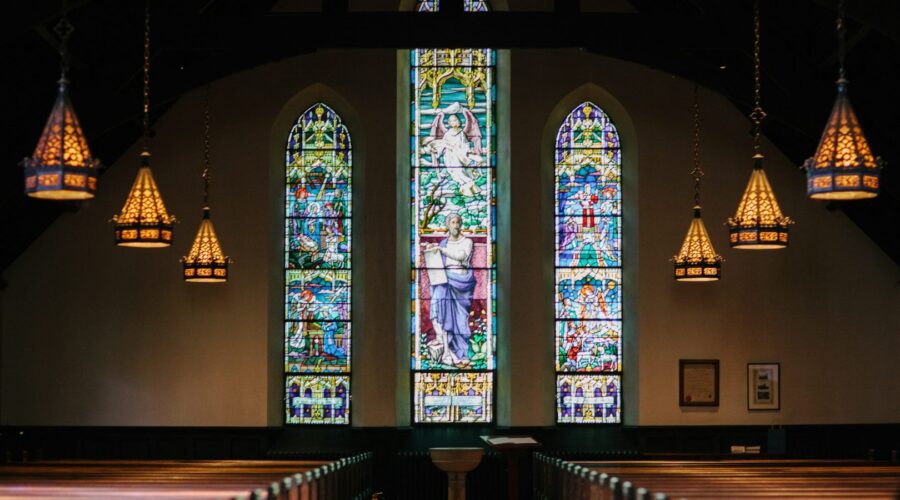
Unlock the Power of Your LDS Account: A Comprehensive Guide
“`html
Your LDS Account serves as a gateway to a wealth of resources and services provided by The Church of Jesus Christ of Latter-day Saints. Whether you’re a lifelong member, a new convert, or simply exploring the faith, having an LDS Account is essential for connecting with the Church and its teachings.
Creating Your LDS Account
- Visit the FamilySearch website: https://www.familysearch.org/
- Click on “Create an Account” in the top right corner
- Enter your personal information (name, address, email, etc.)
- Set up a username and password
- Click on “Next”
- Provide additional information such as your birthdate, gender, and Church membership status
- Click on “Submit”
Key Features and Services
- Access to Gospel Resources: Study the scriptures, listen to conference talks, and explore Church history and teachings through the Gospel Library, churchofjesuschrist.org, and other approved channels.
- Temple and Ordinance Records: View your own temple ordinances, submit temple requests, and access family history records (with a FamilySearch account linked to your LDS Account).
- Church Callings and Assignments: Receive and manage your Church callings, view meeting schedules, and connect with other members in your ward or branch.
- Missionary Service: Track your missionary progress, stay connected with companions and leaders, and access resources for preparing for and serving a mission.
- Personalization: Customize your account settings, choose language preferences, and set notifications to stay updated on important Church events and announcements.
Security and Privacy
The Church takes the privacy and security of your personal information seriously. Your LDS Account is protected by industry-standard encryption and security measures. Remember to safeguard your login credentials and follow best practices for online security.
Troubleshooting and Support
- Forgot Password: Click on “Forgot Password” on the login page and follow the instructions to reset your password.
- Account Locked: If your account has been locked due to multiple failed login attempts, contact the Church’s Help Center for assistance: https://www.churchofjesuschrist.org/help/contact-us
- General Inquiries: Contact the Church via email at [email protected] or through the Help Center website: https://www.churchofjesuschrist.org/help
Conclusion
Your LDS Account is an indispensable tool for navigating your spiritual journey and connecting with the blessings of the gospel. By utilizing its features and services responsibly, you can enhance your faith, knowledge, and involvement in the Church.
“`
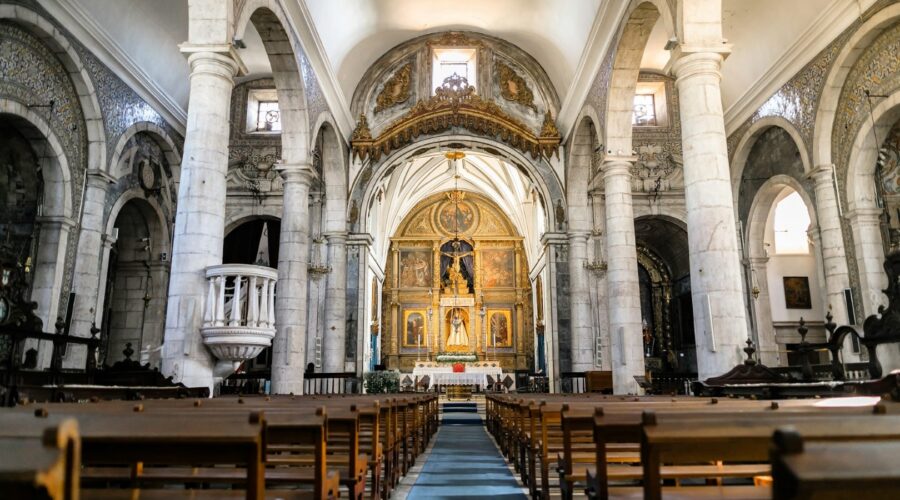
Rediscover Your Life: A Comprehensive Guide to Embracing a New Beginning
1. The Catalyst for Change: Recognizing the Need for a Fresh Start
Recognizing the need for a life reinvention often stems from a realization that your current path is no longer fulfilling or meaningful. Common catalysts include:
- Job dissatisfaction
- Dissatisfaction in relationships
- A sense of existential emptiness
- Trauma or significant life events
Acknowledging these indicators can be empowering and pave the way for a transformative journey.
2. Self-Reflection and Goal Setting: Laying the Foundation
Embarking on a new life requires introspection and clear goals:
2.1 Self-Reflection:
- Assess your values, beliefs, and aspirations
- Identify your strengths, weaknesses, and passions
- Pinpoint areas where you feel stuck or unfulfilled
2.2 Goal Setting:
- Set specific, measurable, achievable, relevant, and time-bound (SMART) goals
- Break down large goals into smaller, manageable steps
- Create a realistic timeline and action plan
3. Changing Course: Embracing New Experiences and Challenges
Stepping into a new life involves actively pursuing change:
3.1 Exploring New Career Paths:
- Research different industries and roles that align with your interests
- Acquire new skills and qualifications through education or training
- Network with professionals in your desired field
3.2 Building Meaningful Relationships:
- Surround yourself with supportive and inspiring individuals
- Join clubs, groups, or volunteer organizations that share your passions
- Seek out mentors or coaches who can guide and support you
3.3 Embracing Healthy Habits:
- Prioritize physical and mental well-being
- Adopt a healthy diet, exercise regularly, and get adequate sleep
- Practice mindfulness and stress-reducing techniques
4. Overcoming Challenges and Maintaining Focus: The Journey to Transformation
Embracing a new life is not without its obstacles and setbacks:
4.1 Dealing with Self-Doubt and Fear:
- Acknowledge and challenge negative self-talk
- Focus on your strengths and past accomplishments
- Seek support from trusted friends or family
4.2 Navigating Life Transitions:
- Embrace change as an opportunity for growth
- Allow yourself time to adjust and adapt
- Seek support and guidance from professionals or support groups
4.3 Staying Motivated and on Track:
- Celebrate your successes, no matter how small
- Re-evaluate your goals and make adjustments as needed
- Surround yourself with positive and encouraging influences
5. The Essence of a New Life: Fulfillment and Gratitude
The ultimate reward of a reinvented life lies in:
5.1 Fulfillment and Purpose:
- Living a life aligned with your values and passions
- Making a meaningful contribution to your community
- Experiencing a sense of deep satisfaction and contentment
5.2 Gratitude and Perspective:
- Appreciating the journey and the challenges overcome
- Cultivating a mindset of gratitude for the good in your life
- Recognizing that change and growth are ongoing processes
Conclusion
Embracing a new life is a transformative endeavor that requires self-awareness, courage, and persistence. By following these steps, you can create a life that is authentic, fulfilling, and uniquely yours. Remember, change is not always easy, but the rewards of a well-lived life far outweigh the challenges. Embrace the journey, stay focused, and never stop growing.
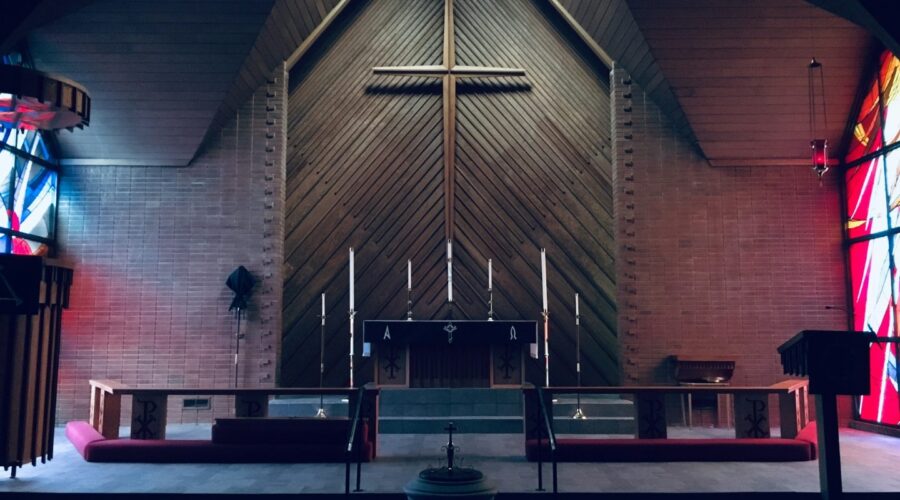
Unlocking the Legacy: A Comprehensive Guide to First Baptist
Introduction
First Baptist, a venerable name in the annals of Christianity, has played a pivotal role in shaping the religious landscape of the United States and beyond. With its rich history and unwavering devotion to spreading the Gospel, First Baptist has left an indelible mark on communities worldwide.
Origins and Beliefs
The Baptist Movement
First Baptist finds its roots in the Baptist movement, which emerged in England in the early 17th century. Baptists were staunch advocates of believer’s baptism, holding that baptism should only be performed on those who have made a conscious confession of faith in Jesus Christ.
Core Beliefs
First Baptist adheres to the traditional tenets of Baptist theology, emphasizing:
- The Bible as the sole authority for faith and practice
- The sovereignty of God in salvation
- Separation of church and state
li>The priesthood of all believers
Historical Impact
Colonial America
First Baptist churches were established in the American colonies during the 17th century. These churches played a significant role in the American Revolution, providing spiritual guidance and support to the colonists who fought for independence.
Social Reforms
Throughout its history, First Baptist has been actively involved in social reforms. It has advocated for religious freedom, racial equality, women’s rights, and social justice.
Global Missions
First Baptist has been instrumental in spreading the Gospel around the world. Its missionaries have established churches, schools, and hospitals in countless countries, bringing the message of salvation to millions.
Contemporary First Baptist
Church Structure
First Baptist churches are typically organized autonomously and governed by a congregation of members. Each church elects its own pastor, deacons, and other church leaders.
Worship Services
First Baptist worship services typically include:
- Prayer
- Scripture reading
- Sermon
- Music
- Holy Communion
Community Outreach
First Baptist churches are actively involved in their communities, offering a wide range of outreach programs such as food pantries, homeless shelters, and after-school programs.
Notable First Baptist Leaders
Roger Williams
Founder of the first Baptist church in America in Providence, Rhode Island. Advocated for religious freedom and separation of church and state.
Adoniram Judson
Missionary to Burma (now Myanmar). Translated the Bible into Burmese and established the first Baptist church in the country.
Martin Luther King Jr.
Civil rights leader who served as pastor of Dexter Avenue Baptist Church in Montgomery, Alabama. Led the Montgomery bus boycott and played a pivotal role in the Civil Rights Movement.
Conclusion
First Baptist has left an enduring legacy of faith, service, and social impact. Its unwavering commitment to the Gospel and its dedication to spreading the message of salvation have transformed countless lives and communities around the world. As First Baptist continues its journey, it remains a vibrant and influential force in the religious landscape, carrying the torch of hope and redemption for generations to come.

Discover the Rich History and Vibrant Community of St. Luke’s United Methodist Church
About St. Luke’s United Methodist Church
Nestled in the heart of Oklahoma City, St. Luke’s United Methodist Church has been a beacon of faith and community involvement for over a century. Founded in 1892, our church has witnessed the city’s growth and transformation while remaining steadfast in its mission to serve the spiritual and practical needs of our congregation and the wider community.
Our Beliefs and Mission
As a United Methodist Church, we adhere to the Wesleyan tradition, emphasizing grace, faith, discipleship, and the importance of a personal relationship with Jesus Christ. Our mission is to “make disciples of Jesus Christ for the transformation of the world” by:
- Proclaiming the Gospel
- Serving the needy
- Nurturing our youth
- Building relationships
Worship and Spiritual Programs
St. Luke’s offers a vibrant worship experience with services led by our talented pastors and musicians. Our Sunday services include:
- Contemporary Worship: 9:00 AM
- Traditional Worship: 11:00 AM
- Blended Worship: 6:00 PM
In addition to our weekly services, we offer a range of spiritual programs, including:
- Bible studies
- Prayer groups
- Retreats
- Missions and outreach
Community Involvement and Outreach
St. Luke’s is deeply committed to serving our community. Our Outreach Committee oversees various initiatives, including:
- A food pantry that provides groceries to families in need
- A clothing closet that distributes clothing and accessories
- Partnerships with local schools and non-profit organizations
- Disaster relief efforts
Youth and Children’s Programs
We believe that nurturing our youth is essential for their spiritual growth and future success. St. Luke’s offers a wide range of programs for children and youth, including:
- Vacation Bible School
- Sunday School classes
- Youth group
- Confirmation program
Membership and Connections
Becoming a member of St. Luke’s United Methodist Church is a meaningful commitment to your spiritual journey and our community. We welcome anyone who shares our beliefs and is seeking a supportive and inclusive church home. Our membership process includes:
- Attending a membership class
- Meeting with a pastor
- Participating in a confirmation ceremony
Once you become a member, you’ll have access to a variety of opportunities to connect with others, including:
- Small groups
- Fellowship events
- Service projects
Location and Contact Information
St. Luke’s United Methodist Church is located at 222 NW 15th Street, Oklahoma City, OK 73103. Our office hours are Monday through Friday from 8:30 AM to 4:30 PM. You can contact us by phone at (405) 525-6311 or email us at [email protected].
Join Our Vibrant Community
Whether you’re new to the area or searching for a spiritual home, we invite you to join our vibrant community at St. Luke’s United Methodist Church. We’re confident that you’ll find a welcoming and supportive environment where you can grow in your faith, serve others, and make a positive impact on our world.
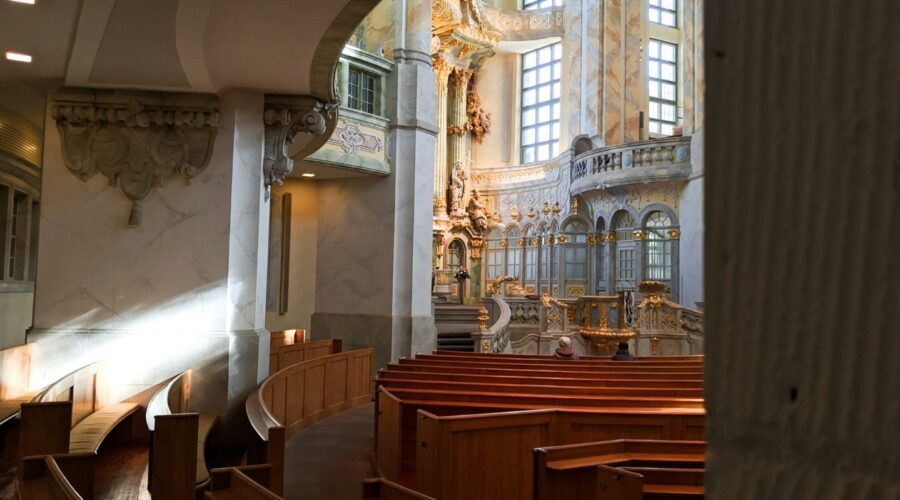
Discovering the Essence of Grace Lutheran Church: A Journey of Faith, Love, and Community
Embarking on a Spiritual Odyssey
Grace Lutheran Church, a beacon of faith and sanctuary for countless souls, has been a cornerstone of spiritual enrichment for generations. Its doors are open to all who seek communion with the divine, offering a warm embrace of love, acceptance, and guidance. Situated at the intersection of faith and community, Grace Lutheran Church plays a vital role in fostering a tapestry of spiritual growth, fellowship, and service.
Core Values: The Pillars of Faith
The heart of Grace Lutheran Church is anchored in its unwavering commitment to core Christian values that illuminate the path towards spiritual fulfillment. These principles, woven into the fabric of the church’s identity, serve as a compass guiding its mission and ministry:
- Grace: An unmerited gift from God, extended unconditionally to all, regardless of their shortcomings or past mistakes.
- Love: The profound and boundless affection of God for humanity, a love that compels us to extend compassion and kindness to all.
- Community: A fellowship of believers united by a shared faith, offering mutual support, encouragement, and a sense of belonging.
Worship Services: A Sanctuary of Spiritual Connection
Worship services at Grace Lutheran Church are a cornerstone of the faith journey, providing a sacred space for communion with God and spiritual renewal. Each service is meticulously crafted to engage the heart, mind, and soul, encompassing:
- Liturgical Elements: Traditional rituals and prayers that connect worshippers to the rich history and heritage of the Lutheran tradition.
- Sermons: Thought-provoking and inspiring messages delivered by the pastor, offering insights into scripture and its relevance to daily life.
- Music: Uplifting hymns and contemporary music that create a vibrant and moving worship experience.
- Holy Communion: A sacred sacrament in which believers receive the bread and wine, symbolizing the body and blood of Christ.
Outreach Programs: Extending Grace Beyond the Walls
Grace Lutheran Church extends its mission beyond its walls, reaching out to the community and the world with a compassionate heart. Through a tapestry of outreach programs, the church strives to embody the teachings of Christ by serving those in need:
- Food Pantry: A lifeline for those facing food insecurity, providing nutritious groceries to families and individuals in the community.
- Clothing Closet: Offering gently used clothing, shoes, and other essentials to those in need of assistance.
- Mission Trips: Embarking on service-oriented trips to bring aid and support to communities in need, both locally and globally.
Educational Programs: Nurturing Spiritual Growth
Grace Lutheran Church places great importance on nurturing the spiritual growth of its members and the community. A comprehensive array of educational programs provides opportunities for individuals of all ages to deepen their understanding of the Christian faith and enhance their spiritual journey:
- Sunday School: Age-appropriate classes for children, offering interactive lessons that introduce them to the Bible and the core teachings of Christianity.
- Bible Study Groups: Small group gatherings that delve into specific biblical texts, fostering a deeper understanding and application of scripture.
- Confirmation Classes: A structured program for youth, exploring the Lutheran faith and preparing them for confirmation, a rite of passage in the Lutheran tradition.
Pastoral Care: A Listening Ear, a Guiding Light
The pastors of Grace Lutheran Church serve as shepherds of the flock, providing compassionate pastoral care to all who seek guidance, comfort, or support. Their doors are always open to offer:
- Counseling: Confidential and empathetic counseling sessions to address personal challenges, relationship issues, or spiritual struggles.
- Hospital and Home Visits: Reaching out to those who are hospitalized, homebound, or in need of spiritual support during difficult times.
- Prayer and Intercession: Offering prayers for healing, guidance, and strength to those facing life’s challenges.
Grace Lutheran Church: An Oasis of Faith and Belonging
Grace Lutheran Church is more than just a place of worship; it is a vibrant community where individuals from all walks of life find acceptance, love, and a sense of belonging. Its doors are open to all who seek a deeper connection to God, a supportive spiritual family, and opportunities to serve others. Whether you are a lifelong Lutheran, a newcomer to the faith, or simply seeking a spiritual haven, Grace Lutheran Church invites you to embark on a journey of faith, love, and community.
Contact Information:
Grace Lutheran Church
123 Main Street
Anytown, CA 12345
(555) 123-4567
[email protected]
Service Schedule:
Day Time Type of Service Sunday 9:00 AM Traditional Worship with Holy Communion Sunday 11:00 AM Contemporary Worship with Live Band Wednesday 7:00 PM Midweek Bible Study and Prayer 
Discover the Rich History and Impact of Shiloh Baptist Church
A Beacon of Faith and Community
Established in 1836, Shiloh Baptist Church has played a pivotal role in the spiritual and social fabric of Washington, D.C. and beyond. Its legacy is intertwined with the struggles and triumphs of the African American community, serving as a beacon of hope, empowerment, and community engagement.
Humble Beginnings and Early Leadership
Founding and Growth
Shiloh Baptist Church owes its inception to a group of seven enslaved individuals who gathered in a blacksmith shop on September 22, 1836. Led by the charismatic Rev. Henry A. Addison, they formed a prayer group that eventually grew into a congregation.
Rev. Henry A. Addison
As the church’s first pastor, Rev. Addison led Shiloh Baptist through its formative years. His powerful preaching and unwavering advocacy for social justice laid the foundation for the church’s future impact.
Civil War and Reconstruction Era
The Civil War and Reconstruction era brought both challenges and opportunities for Shiloh Baptist Church. The church supported the abolitionist movement and provided refuge for escaped slaves.
Leadership of Rev. Matthew W. Gilbert
Rev. Matthew W. Gilbert, who succeeded Rev. Addison as pastor, played a key role in rebuilding the church after the war and establishing its role in the fight for civil rights.
20th Century Expansion and Social Impact
The 20th century witnessed unprecedented growth and influence for Shiloh Baptist Church. Under the leadership of prominent pastors, the church expanded its physical facilities, established numerous social service programs, and became a voice for the African American community on a national level.
Rev. Morris J. Jones Sr.
Rev. Morris J. Jones Sr. led the church from 1924 to 1989. His charismatic leadership and advocacy for civil rights made Shiloh Baptist a major force in the fight for racial equality.
Social Service Programs
Shiloh Baptist Church established a wide range of social service programs, including a day care center, health clinic, and youth programs. These programs continue to serve the needs of the community today.
Contemporary Shiloh Baptist Church
Shiloh Baptist Church continues to thrive in the 21st century, led by its current pastor, Rev. Wallace Charles Smith. The church remains a vibrant spiritual center and a hub for community engagement, carrying on the legacy of its founders.
Leadership of Rev. Wallace Charles Smith
Rev. Smith has led the church since 2008. His focus on community outreach, youth empowerment, and interfaith dialogue has further strengthened Shiloh Baptist’s impact.
Community Partnerships
Shiloh Baptist Church actively partners with other organizations to address issues facing the community. These partnerships include initiatives focused on economic development, education, and health care.
Conclusion
Shiloh Baptist Church stands as a testament to the enduring power of faith, community, and social activism. From its humble beginnings as a prayer group of enslaved individuals to its present-day status as a thriving spiritual and community center, the church has left an indelible mark on Washington, D.C. and beyond. The legacy of Shiloh Baptist Church continues to inspire and empower generations to come.
Additional Resources

Unveiling the Sacred Mystery of the Holy Mass: A Comprehensive Guide
Introduction
The Holy Mass, celebrated within the Catholic tradition, holds a central and profound place in the faith and lives of its members. It is a sacrament, an encounter with the divine, and a commemoration of Christ’s life, death, and resurrection. This comprehensive guide aims to illuminate the multifaceted nature of the Holy Mass, providing a deeper understanding of its history, significance, and components.
Historical and Theological Foundations
Origins and Evolution
The roots of the Holy Mass can be traced back to the Jewish Passover meal. The early Church adapted this tradition, incorporating elements of Jesus’ Last Supper with his disciples. Over time, the structure and rituals of the Mass have evolved, influenced by liturgical movements and theological developments.
Theological Significance
The Holy Mass holds great theological significance. It is:
- A re-presentation of Christ’s sacrifice on Calvary
- A means of receiving grace and forgiveness
- A communion with God and the Church
- A foretaste of the heavenly banquet
The Structure of the Holy Mass
The Holy Mass can be divided into four main parts:
1. Introductory Rites
- Entrance hymn
- Greeting
- Penitential Act
- Gloria (on Sundays and solemnities)
- Opening Prayer
2. Liturgy of the Word
- First Reading (from the Old Testament)
- Psalm
- Second Reading (from the New Testament)
- Gospel Acclamation
- Gospel Reading
- Homily
- Profession of Faith
- General Intercessions
3. Liturgy of the Eucharist
- Preparation of the Gifts
- Prayer over the Offerings
- Eucharistic Prayer (with the Words of Consecration)
- Acclamation (Holy! Holy! Holy!)
- Lord’s Prayer
- Rite of Peace
- Breaking of the Bread
- Communion
4. Concluding Rites
- Prayer after Communion
- Blessing
- Closing Hymn
Symbols and Rituals
The Holy Mass is replete with symbols and rituals that convey its profound meaning:
Bread and Wine
These represent the Body and Blood of Christ, which are offered and received in the Eucharist.
Altar
This symbolizes the table of the Last Supper and the place where Christ’s sacrifice is made present.
Vestments
The liturgical garments worn by the priest signify his role and authority.
Incense
This fragrant smoke symbolizes prayer rising to God and the purification of the surroundings.
Music
Liturgical music enhances the atmosphere of the Mass and supports the prayerful participation of the congregation.
Participation and Preparation
Full participation in the Holy Mass requires:
Active Listening and Prayer
Engage with the readings, homily, and prayers, offering your interior responses.
Vocal and Bodily Gestures
Join in singing, acclamations, and liturgical actions (e.g., standing, kneeling).
Receiving Communion
Approach the sacrament with reverence and belief in Christ’s presence.
Proper preparation for Mass includes:
Sacramental Confession
This helps to purify oneself from sin before receiving Communion.
Fasting
Eucharistic fasting (abstaining from food and drink for a specified period) prepares the body and soul.
Devotional Practices
Prayer, Bible reading, and spiritual reflection deepen one’s appreciation for the Mass.
Fruits and Benefits
Regular attendance at the Holy Mass brings numerous fruits and benefits:
Spiritual Nourishment
The Mass provides sustenance for the soul through the reception of the Eucharist.
Grace and Forgiveness
Participating in the sacrament of Reconciliation and receiving Communion offer opportunities for forgiveness and strengthening of grace.
Community Building
The Mass fosters unity among believers, creating a sense of belonging and shared faith.
Missionary Zeal
The Mass inspires a desire to share the Gospel and witness to Christ in the world.
Conclusion
The Holy Mass is a multifaceted and sacred event that connects us with God, the Church, and one another. By understanding its history, significance, structure, and rituals, we can deepen our appreciation for this precious gift. Through active participation and proper preparation, we can experience the transformative power of the Holy Mass, receiving spiritual nourishment, grace, and a profound encounter with the divine.
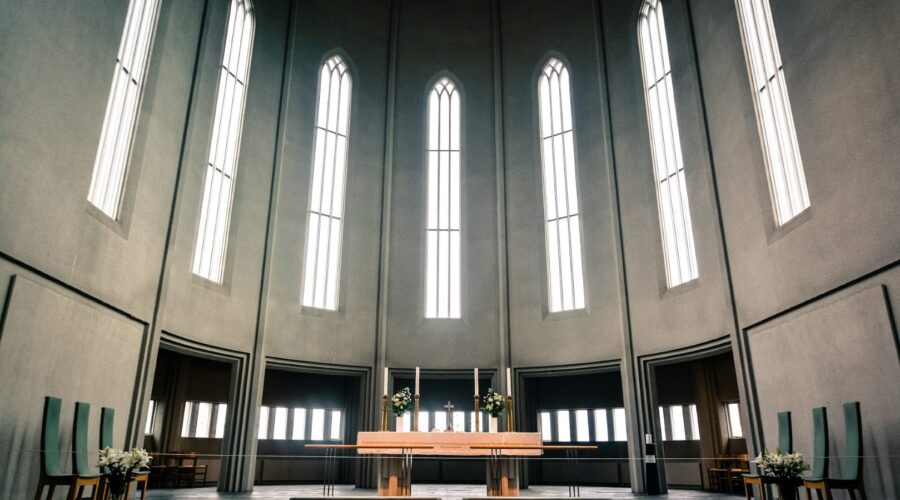
Discover the Summit Church: A Thriving Community of Faith
“`html
Welcome to the Summit Church, a vibrant and growing community of believers who are committed to connecting with God and each other. This blog post is a comprehensive guide to everything you need to know about our church, from our history and beliefs to our ministries and community outreach. Whether you’re a first-time visitor or a long-time member, we hope you’ll find this information helpful and inspiring.
Our History and Beliefs
The Summit Church was founded in 2000 by Pastor Andy Stanley. Our mission is to connect people to God and to each other. We believe that the Bible is the authoritative Word of God and that Jesus Christ is the only way to salvation. We are committed to preaching and teaching the Gospel, and to creating a welcoming and inclusive environment for all who come to our church.
Our Core Values
- Love God: We believe that God is love and that we are called to love him with all our hearts, minds, and souls.
- Love People: We believe that every person is created in the image of God and that we are called to love and serve one another.
- Make Disciples: We believe that Jesus commanded us to make disciples of all nations and that we are called to share the Gospel with the world.
- Serve the Community: We believe that we are called to be a light in our community and to serve others in need.
Our Pastors and Staff
The Summit Church is led by a team of dedicated pastors and staff. Our senior pastor is Andy Stanley, who is known for his engaging and practical teaching. Our other pastors include Brad Brisco, Alex Himaya, and Johnny Hunt. Our staff is made up of a team of talented and passionate individuals who are committed to serving our church and community.
Our Ministries
The Summit Church offers a variety of ministries to meet the needs of our congregation and community. These ministries include:
- Children’s Ministry: Our children’s ministry is designed to help children grow in their faith and to learn about God’s love for them.
- Student Ministry: Our student ministry is designed to help students navigate the challenges of adolescence and to grow in their faith.
- Adult Ministries: We offer a variety of adult ministries to meet the needs of our congregation, including small groups, Bible studies, and discipleship programs.
- Outreach Ministries: We believe that we are called to be a light in our community and to serve others in need. Our outreach ministries include a variety of programs to help the poor, the hungry, and the homeless.
Our Community Outreach
The Summit Church is committed to making a difference in our community. We partner with a variety of organizations to provide food, clothing, and shelter to those in need. We also offer financial assistance to families and individuals who are struggling to make ends meet. We believe that we are called to be a light in our community and to serve others in need.
How to Get Involved
If you’re interested in getting involved with the Summit Church, there are a variety of ways to do so. You can attend one of our services, join a small group, or volunteer with one of our ministries. We also offer a variety of opportunities for leadership and service. To learn more about how to get involved, please visit our website or contact us at [email protected].
We invite you to join us on this exciting journey of faith. The Summit Church is a place where you can connect with God, grow in your faith, and make a difference in the world. We hope to see you soon!
“`
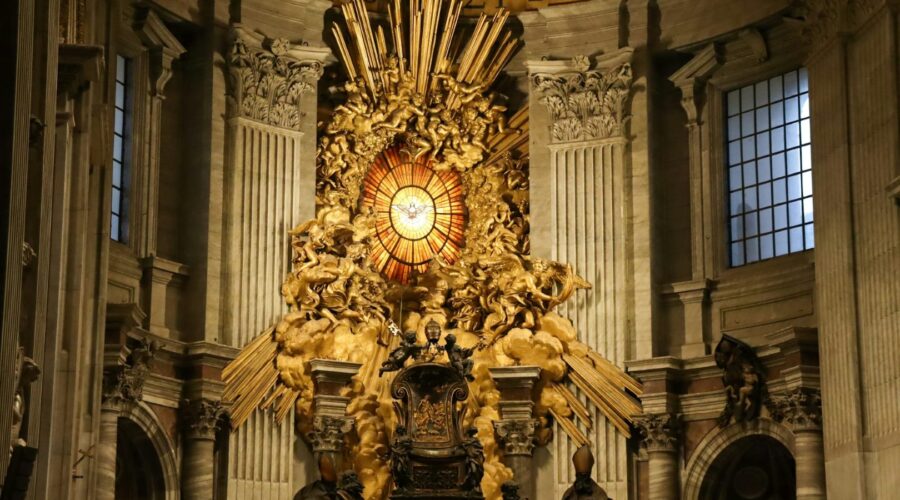
Ignite Your Faith: Embark on the Journey of a Creative Church
Introduction
In an era where tradition and innovation intertwine, the concept of a creative church is gaining prominence. By embracing artistic expression, modern worship experiences, and community outreach, creative churches are revitalizing the connection between faith and creativity, fostering a dynamic and engaging spiritual environment.
Pillars of a Creative Church
Artistic Expression
Creative churches seamlessly integrate the arts into their worship services and community events. This includes:
- Music: Contemporary worship bands, choirs, and instrumentalists create uplifting and inspiring music that resonates with modern audiences.
- Dance: Interpretive and liturgical dance adds movement and expression to worship, enhancing the emotional and spiritual experience.
- Visual Arts: Paintings, sculptures, and photography adorn church spaces, creating an aesthetically pleasing and contemplative environment.
- Drama: Skits, plays, and storytelling convey biblical truths and inspire reflection through the power of performance.
Modern Worship Experiences
Creative churches embrace innovative worship styles that cater to contemporary sensibilities:
- Interactive Sermons: Pastors engage with the congregation through multimedia presentations, personal anecdotes, and interactive discussions.
- Multi-sensory Worship: Worship spaces incorporate elements like lighting, sound, and scents to create immersive and transformative experiences.
- Community Participation: Worshipers are encouraged to contribute their talents, joining the worship team or leading small group discussions.
- Online Worship: Churches expand their reach through live-streamed services, online Bible studies, and virtual community gatherings.
Community Outreach
Creative churches extend their impact beyond their walls through creative outreach programs:
- Community Arts Projects: Churches partner with local artists to organize exhibitions, workshops, and public art installations that engage the wider community.
- Social Justice Initiatives: Creative churches use their platform to advocate for social justice issues, such as poverty, homelessness, and environmental protection.
- Community Service: Churches mobilize volunteers to provide practical assistance, such as food banks, after-school programs, and disaster relief.
- Interfaith Dialogues: Creative churches foster interfaith dialogue by organizing joint events with other religious groups, promoting understanding and cooperation.
Benefits of a Creative Church
Embracing creativity transforms a church into a vibrant and welcoming environment, offering numerous benefits:
- Improved Worship Experiences: Artistic expression and modern worship styles enhance the spiritual connection between worshipers and God, creating a more engaging and memorable experience.
- Enhanced Community Involvement: Creative churches foster a sense of belonging by providing opportunities for members to contribute their talents and connect through shared creative endeavors.
- Attracting Newcomers: The innovative and accessible nature of creative churches appeals to individuals who may not have found a spiritual home in traditional church settings.
- Positive Social Impact: Through community outreach programs, creative churches make a tangible difference in the lives of others, fostering a spirit of compassion and service.
Challenges and Considerations
While the concept of a creative church is compelling, it comes with its share of challenges and considerations:
- Finding a Balance: Striking a balance between tradition and innovation is crucial to maintain the integrity of the church’s mission while embracing creativity.
- Financial Resources: Implementing creative programs and initiatives often requires additional financial resources, which churches may need to raise through fundraising or partnerships.
- Cultural Resistance: Some members may be resistant to change and hesitant to embrace new worship styles or artistic expressions within the church.
- Lack of Artists: Churches may face challenges in finding and retaining talented artists who are both committed to the mission of the church and skilled in their craft.
Conclusion
The journey of a creative church is a transformative one, offering a dynamic and engaging environment for spiritual growth, community involvement, and outreach. By harmonizing artistic expression, modern worship practices, and community service, creative churches are revitalizing the connection between faith and creativity, inspiring and empowering individuals in their journey toward a fulfilling spiritual life. Embracing the opportunities and navigating the challenges associated with creativity can lead to the flourishing of a church and the enrichment of its members.

Show Your Pastor Appreciation: A Comprehensive Guide to Expression and Gratitude
Why Pastor Appreciation Matters
Pastors are an integral part of our lives. They provide spiritual guidance, support, and leadership to our communities. As such, it’s crucial to show them our sincere appreciation for their dedication and service.
Ways to Express Appreciation
Verbal Expression
- Write a heartfelt thank-you note expressing your gratitude for their guidance and unwavering support.
- Speak words of appreciation during church services, Bible studies, or casual conversations.
- Call or email them to share specific ways their ministry has impacted your life.
Tangible Gestures
- Gift cards for their favorite restaurants or stores.
- A handwritten card signed by multiple church members.
- A customized photo album or scrapbook filled with memories from ministry events.
- Contributions to their favorite charities.
Acts of Service
- Volunteer your time to help with church tasks, such as cleaning, setting up for events, or running errands.
- Offer to babysit their children so they can enjoy a night out.
- Provide transportation or assistance with household chores.
Special Occasions
Pastor Appreciation Sunday
This annual event is a dedicated time to celebrate and honor our pastors. Consider organizing a special service, Potluck, or other activities to show your appreciation.
Anniversaries
Mark the milestones in your pastor’s ministry by planning a small celebration or sending a congratulatory message.
Special Gifts
- A personalized robe.
- A new Bible or study materials.
- Tickets to a conference or retreat.
- A family vacation.
Tips for Meaningful Appreciation
Be Specific
Share specific examples of how your pastor has impacted your life or the community.
Be Sincere
Take time to craft personalized expressions that demonstrate genuine gratitude.
Involve Others
Encourage other church members to join in showing appreciation, whether through gifts, acts of service, or verbal expressions.
Make It a Habit
Don’t just limit your appreciation to special occasions. Make expressing gratitude an ongoing habit to foster a positive and supportive relationship with your pastor.
Additional Considerations
Pastor Appreciation Fund
Consider establishing a fund specifically for pastor appreciation. This allows the congregation to contribute throughout the year, providing pastors with flexible financial support.
Prayer and Encouragement
Beyond tangible expressions, let your pastor know that you are praying for their well-being and ministry. Offer words of encouragement and support.
Seek Feedback
Ask your pastor what forms of appreciation they find most meaningful. This helps ensure your efforts are aligned with their preferences.
Conclusion
Showing appreciation to our pastors is not only a kind gesture but an essential way to honor their tireless efforts. By expressing our gratitude through various means, we strengthen our relationship with them and contribute to a thriving and supportive church community. Let us all strive to make our pastors feel valued, acknowledged, and appreciated for the vital role they play in our lives.